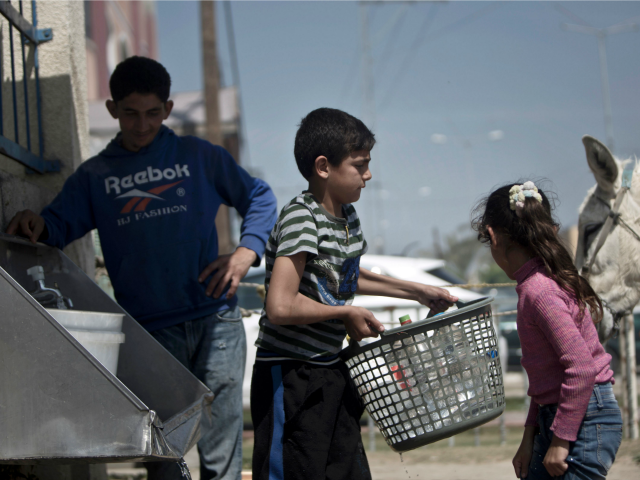TEL AVIV – Millions of gallons of sewage from Gaza poured every day into the Mediterranean are destroying Palestinian and Israeli freshwater supplies as well as local fishing zones, the Associated Press reported.
The report said that pollution caused by the raw sewage has caused miles of coastline to turn into rotting quagmires and has already forced the closure of an Israeli desalination plant.
“It’s certain that the Gaza Strip’s beaches are completely polluted and unsuitable for swimming and entertainment, especially in the summer,” said Ahmed Yaqoubi of the Palestinian Water Authority.
While several aid groups have attempted to solve the sewage crisis, fixing the problem would mean lifting restrictions on building materials, something that is difficult for Israel to do in light of Hamas’ history of confiscating construction materials for terrorist purposes.
A $20 million initiative to restore a sewage plant in Gaza is being slowed due to Israel’s security restrictions.
“At the end we get most of the material in, but it’s a struggle, it takes time, and it causes delay, which leads to extra costs,” Jonas Blume, director of the West Bank branch of the German state-owned KfW bank funding the rehabilitation, said.
The World Bank in the West Bank and Gaza Strip built a $73 million sewage treatment plant nine years ago, but due to an unreliable power supply, the facility isn’t functional.
COGAT, the Israeli authority responsible for Palestinian affairs, said Israel supplies 125 to 140 megawatts of power a day to the Gaza Strip, but ultimately the decision on how to distribute the electricity is the responsibility of the Palestinians.
COGAT added that supplies of wood and cement were slowed because Hamas used them to build terror tunnels.
Ahmed Yaqoubi of the Palestinian Water Authority warned that the delays will result in a water crisis. As it stands right now, Yaqoubi asserts that 100% of Gaza’s water is not potable.
According to Gidon Bromberg, the Israeli director of the environmental group EcoPeace Middle East, “there’s no doubt” that the closure of a desalination plant near Ashkelon was due to waste from Gaza, even though the Israeli Water Authority did not confirm this.
He also warned that if Gaza’s sewage isn’t treated soon, diseases like cholera and typhoid could come to Israel via the sea and a shared aquifer.
“It’s a single shared bathtub,” Bromberg said. “There’s 101 different ways for these bacterium to be transferred.”

COMMENTS
Please let us know if you're having issues with commenting.